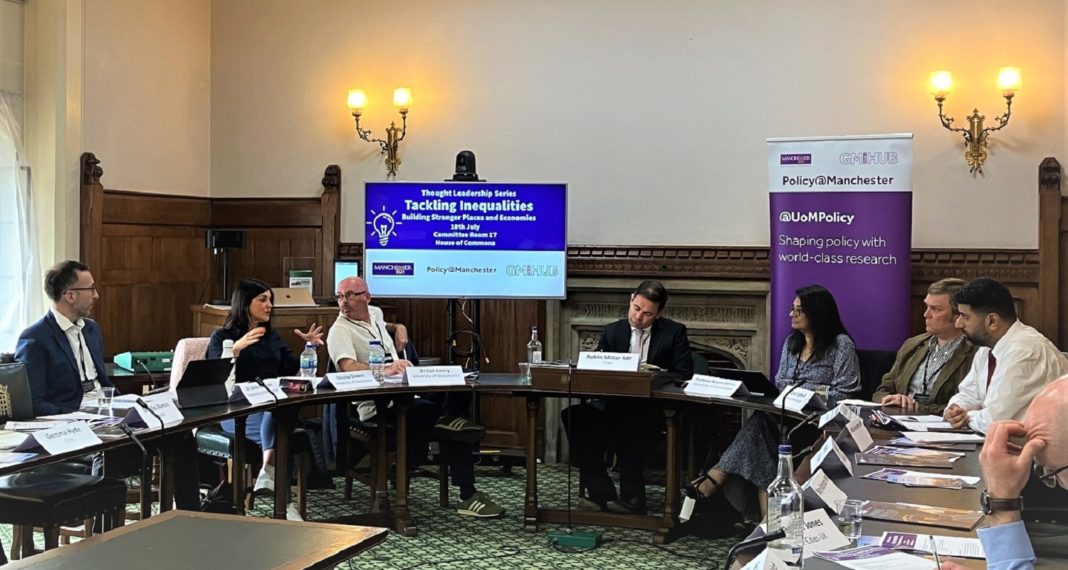

The House of Commons was the venue for a roundtable event hosted by The University of Manchester to examine how ‘place-based’ policy can make a real difference in reducing inequalities and boosting growth and productivity across the country.
A place-based approach recognises that national policies and strategies may not be appropriate for every locality, and that a more tailored method is often required to address the specific needs and challenges of different communities, using local knowledge and evidence.
Organised by the University’s policy engagement unit, Policy@Manchester, the event brought together parliamentarians, academics, business leaders, economists, think tanks, charities and others to discuss place-based issues related to health, education, sustainability and economic disparities.
It followed the recent launch of Power in Place, a collection of nine articles from University of Manchester academics focussing on regional inequalities and levelling up.
Several of the speakers at the roundtable also contributed to the 44-page document which was published just days before the death of former Head of the Civil Service, Lord Kerslake, who wrote the foreword.
They included Dr Jamie Anderson, Research Fellow in Geography at The University of Manchester, who said: “We need legal binding accountability in all stages of policy for the places we are building and urgently retrofitting. In order to be resilient to climate change and simultaneously level up on wellbeing outcomes, policy and practice must move beyond valiant target-setting.
“We must now also require science-based estimates of proposal impact at the outset, then monitor progress objectively and collaboratively, requiring effective action when progress is off course.”
Dr Carl Emery and Louisa Dawes, from the Manchester Institute of Education based at the University, also participated in the roundtable.
They commented: “No matter where interest lies, it is clear that a standardised and one size fits all approach to alleviating poverty is not working.
“From an education perspective, an understanding of the local area, be it asset based in terms of business and facilities, or cultural and social, is key for schools to help shape students’ experiences and attitudes as well as building skills and expertise in their own communities, for their own communities.”
Power in Place can be read and downloaded from the Policy@Manchester website.








